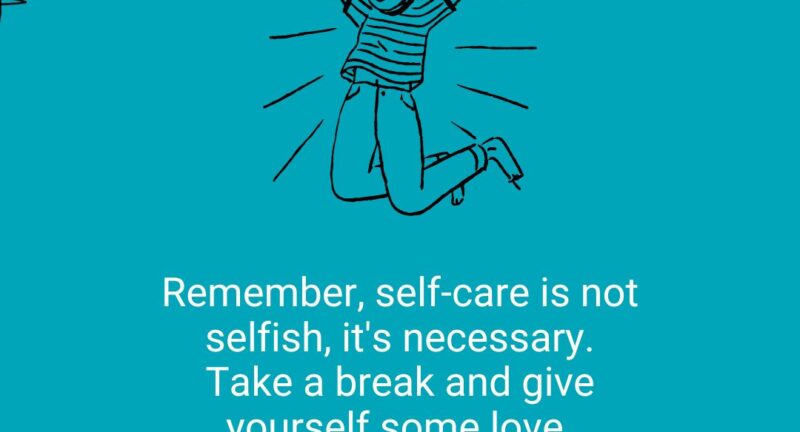
Overcoming the Negative Self-Talk Cycles of Depression
How you talk to others is important and can play a big role in the quality of your relationships. However, how you talk to yourself is equally important. Your state-of-mind and your internal monologue (self-talk) impacts your mental health. The American Psychological Association can assess the quality of self-talk to predict anxiety in kids. Self-talk doesn’t just impact anxiety; it can exacerbate depression too. According to a study published in the Annual Review of Clinical Psychology, people who engage in negative self-talk experience more intense feelings of depression.
Here at Next Step 2 Mental Health, we want to help you overcome both the physical and mental challenges of living with depression. Our multidisciplinary team is experienced when it comes to diagnosing and treating depression — and that includes helping you overcome negative self-talk.
In the meantime, read through this article to learn how to identify common negative self-beliefs and how you can reframe your mindset.
Depression and Negative Self-Talk: What’s the Link?
Sadness is one of the most well-known symptoms of depression. While intense sadness can be debilitating, it’s not the only symptom of depression. Other symptoms of depression include changes to your eating habits (eating more or less), changes to your sleeping routines (sleeping more or less), irritability, fatigue, and physical aches.
Teens and adults with depression might also cling to negative self-beliefs. Self-beliefs are thoughts and perceptions about yourself, and they can be positive or negative.
Negative self-beliefs are faulty, self-defeating thoughts that you hold about yourself and/or the world around you.”
Negative self-beliefs cause low self-esteem. Holding so many negative views about yourself and your abilities can impact your life in many ways.
Negative self-talk might:
- Make it hard for you to think you’ll reach your goals
- Lead you into the faulty thinking patterns that if you can’t be perfect, then it’s just not worth it to try
- Impact your relationships with friends, co-workers, and family members
So what can you do about negative self-talk? The first step in overcoming negative core beliefs is to learn to identify the negative self-talk and then work towards minimizing those thought patterns.
Identifying Negative Self-Talk and Negative Core Beliefs
Negative core beliefs are the faulty things you believe about yourself, and negative self-talk is the way you talk to yourself — that inner dialogue with yourself.
Negative self-talk can sound different to each person, but here are 10 examples.
- “I’m unlovable.”
- “I can’t do anything right.”
- “I’ll never be good enough at A or B.”
- “I’m not enough.”
- “I’ll never be a good enough spouse.”
- “I’m a failure.”
- “I’m not a good enough parent/brother/sister/friend.”
- “I’m too weak.”
- “I’m too lazy.”
- “I’ll never succeed at work.”
Once you can pinpoint a thought as limiting or negative, you can start to replace negative thoughts with neutral thoughts.
Replacing Negative Thoughts
First, remember that your thoughts don’t necessarily reflect the truth. For instance, just because you think you’ll never be a good enough runner doesn’t mean that you have to stop going for a daily jog.
Negative self-talk wants you to think “I’m too weak, and I’ll never be able to run a 5K.” However, if you focus on neutral thoughts — rather than the negative — you might see a clear path forward.
What does a neutral thought sound like?
Consider this phrase: “Preparing for this race is challenging. I understand now how more cross-training sessions can help me become a better runner.”
Here’s the difference: Negative self-talk limits your ability to believe in yourself to reach your goals. Neutral self-talk can help you see your potential without limiting you. Positive self-talk can take it one step further.
Consider this phrase: “My body is strong. With every training day, my muscles become stronger and stronger. I can follow the training program, and I can complete my race.”
Positive Self-Talk

Multiple studies have shown that positive thinking and positive self-talk can have a real impact on your mental and physical health. For instance, athletes often use positive self-talk to boost performance or even push through more challenging workouts.
Examples of positive self-talk include:
- “I can do this.”
- “I am good enough.”
- “My body knows what to do.”
- “If I try hard, I can get there.”
More Options to Stop Negative Self-Talk
In addition to focusing on neutral and positive self-talk, keep these tips in mind:
- Say your self-beliefs out loud. It might feel silly at first, but it’s actually a lot easier to spot the negative self-talk by saying your thoughts out loud.
- Ask yourself what a friend would say to you. Try to think like your friend. Or, alternatively, what would you say to a friend in your position?
- Insert as much positive self-talk into your day as possible. You can even stick sticky notes on your mirror to start your day on a more positive note.
Remember: Share a little TLC with yourself. Loving yourself starts with how you think about yourself.
Depression Treatment When You Need It Most
At Next Step, we know how profoundly depression can impact all aspects of your life. We also know that it can be hard to free yourself from a cycle of negative self-talk. The good news is you don’t have to go on this journey alone. Our compassionate, non-judgmental team offers a variety of depression treatments, including medication and therapy.
If depression is keeping you from your potential, we can help. Call our Louisville, Kentucky office at 502-339-2442. You can also request an appointment online.
Related Posts
Navigating the Holiday Season: Support for Those Sandwiched Between Childcare and Caring for Aging Parents
The holiday season is often viewed as a time of joy, family, and togetherness....
32 Ways to Help Someone with Depression (When They Don’t Want to Talk about It)
Depression can be debilitating, and if it's your child or spouse or friend...


